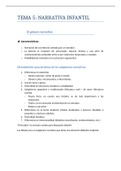The Pax Romana
Augustus Becomes Emperor
The passing of the " dictator for life" Julius Caesar on the Ides of March 44 BCE
carried disorder to the Republic. Endeavors to restore the old magistrate at last
fizzled. Octavian, the youthful embraced child of Caesar, chased down his
"father's" professional killers and crushed different inquirers to the privileged
position (Mark Antony and Marcus Amelius Lepidus), getting for himself the
administration of Rome thus a domain was conceived. Augustus, as he would now
be known, would introduce an uncommon period of thriving and solidness; the
issue of the earlier years was cleaned away.
THE REIGN OF AUGUSTUS FROM 27 BCE TO 14 CE BROUGHT PEACE
AND SECURITY TO BOTH POLITICS AND TRADE.
The Roman Senate conceded Augustus practically limitless powers, carrying
change to both the city and regions. He turned into the "primary resident" or
princeps, accordingly starting the principate. The Senate conceded him and his
replacements certain powers forever: to be specific imperium maius, outrageous
power over the common lead representatives, and tribunicia potestas or tribune of
the plebs, the position to call a gathering of individuals to establish regulations.
With these recently produced powers, he could reject the activities of the justices
, and, to control everyone around him, he controlled the majestic support. His rule
would carry harmony and security to both legislative issues and exchange -
something that numerous Romans, in the city as well as in the territories, had long
wanted. In any case, harmony would come at a lofty cost. This Augustan Peace, a
harmony that brought relative calm, would keep going for very nearly 200 years.
Augustus' Constitutional Reforms
After the death of the Second Triumvirate, Augustus reestablished the outward
exterior of the free Republic with administrative power vested in the Roman
Senate, the leader justices, and the authoritative congregations. As a general rule,
in any case, he held his totalitarian control over the Republic as a tactical tyrant.
By regulation, Augustus held powers conceded to him for life by the Senate,
including preeminent military order and those of tribune and control. It required
quite a while for Augustus to foster the structure inside which an officially
conservative state could be driven under his only rule.
Augustus passed a progression of regulations between the years 30 and 2 BCE that
changed the constitution of the Roman Republic into the constitution of the Roman
Empire. During this time, Augustus improved the Roman arrangement of tax
collection, created organizations of streets with an authority messenger framework,
laid out a standing armed force, laid out the Praetorian Guard, made official police
Augustus Becomes Emperor
The passing of the " dictator for life" Julius Caesar on the Ides of March 44 BCE
carried disorder to the Republic. Endeavors to restore the old magistrate at last
fizzled. Octavian, the youthful embraced child of Caesar, chased down his
"father's" professional killers and crushed different inquirers to the privileged
position (Mark Antony and Marcus Amelius Lepidus), getting for himself the
administration of Rome thus a domain was conceived. Augustus, as he would now
be known, would introduce an uncommon period of thriving and solidness; the
issue of the earlier years was cleaned away.
THE REIGN OF AUGUSTUS FROM 27 BCE TO 14 CE BROUGHT PEACE
AND SECURITY TO BOTH POLITICS AND TRADE.
The Roman Senate conceded Augustus practically limitless powers, carrying
change to both the city and regions. He turned into the "primary resident" or
princeps, accordingly starting the principate. The Senate conceded him and his
replacements certain powers forever: to be specific imperium maius, outrageous
power over the common lead representatives, and tribunicia potestas or tribune of
the plebs, the position to call a gathering of individuals to establish regulations.
With these recently produced powers, he could reject the activities of the justices
, and, to control everyone around him, he controlled the majestic support. His rule
would carry harmony and security to both legislative issues and exchange -
something that numerous Romans, in the city as well as in the territories, had long
wanted. In any case, harmony would come at a lofty cost. This Augustan Peace, a
harmony that brought relative calm, would keep going for very nearly 200 years.
Augustus' Constitutional Reforms
After the death of the Second Triumvirate, Augustus reestablished the outward
exterior of the free Republic with administrative power vested in the Roman
Senate, the leader justices, and the authoritative congregations. As a general rule,
in any case, he held his totalitarian control over the Republic as a tactical tyrant.
By regulation, Augustus held powers conceded to him for life by the Senate,
including preeminent military order and those of tribune and control. It required
quite a while for Augustus to foster the structure inside which an officially
conservative state could be driven under his only rule.
Augustus passed a progression of regulations between the years 30 and 2 BCE that
changed the constitution of the Roman Republic into the constitution of the Roman
Empire. During this time, Augustus improved the Roman arrangement of tax
collection, created organizations of streets with an authority messenger framework,
laid out a standing armed force, laid out the Praetorian Guard, made official police





